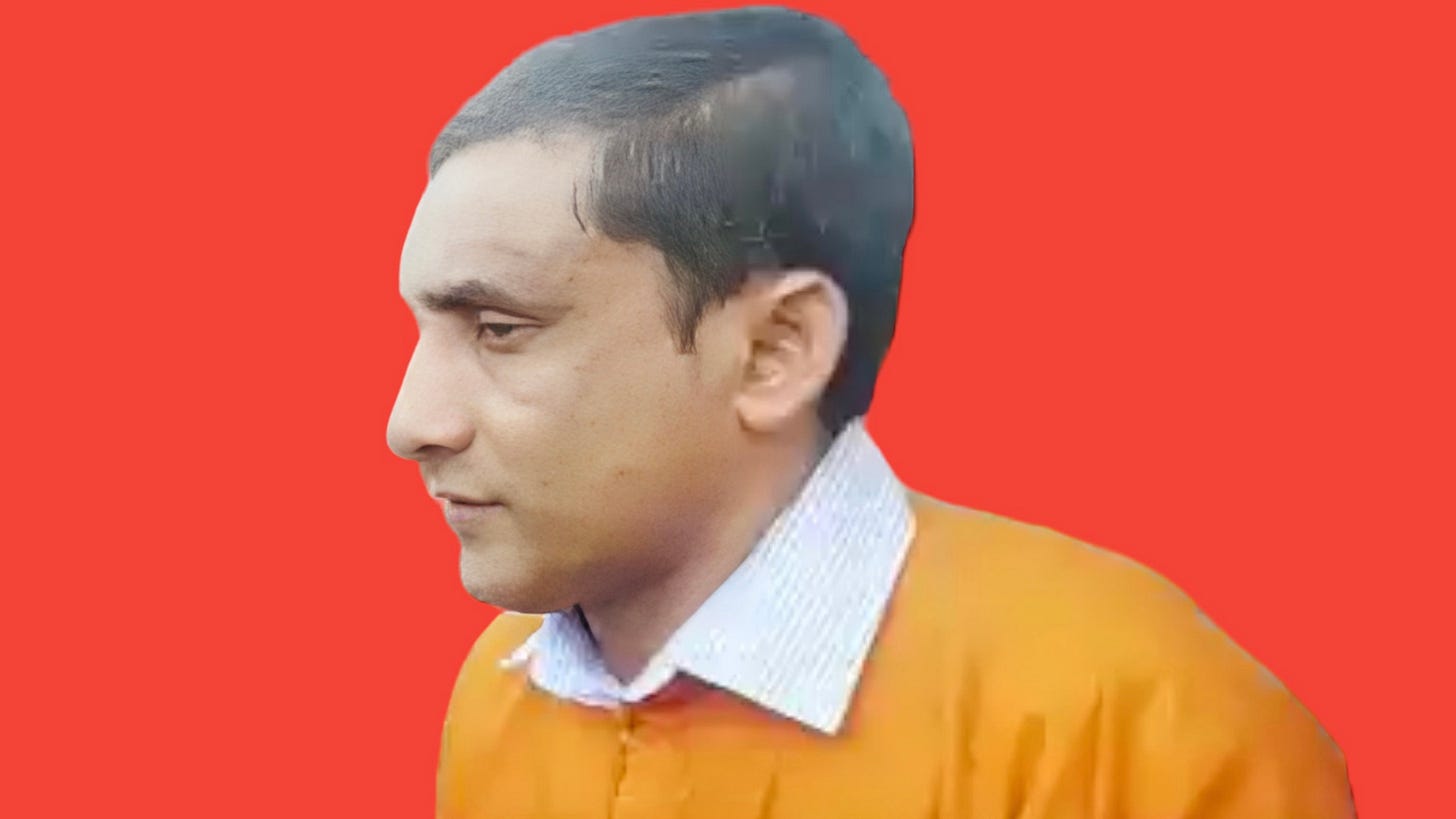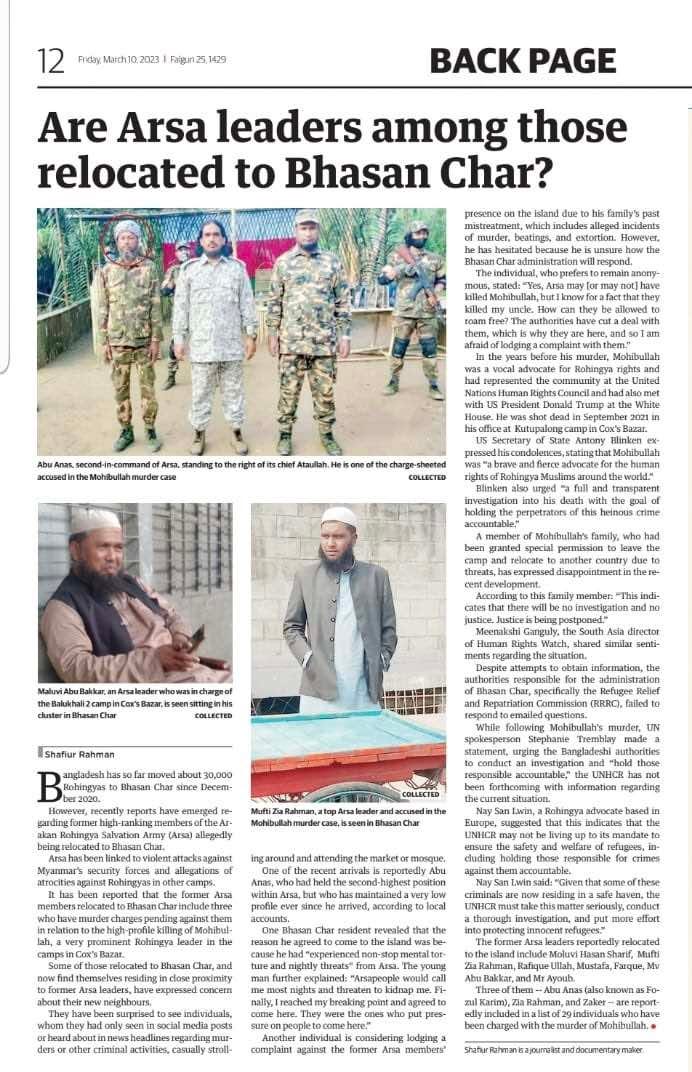Mohibullah Killers granted amnesty in Bhasan Char Refugee camp?
Former ARSA members allegedly granted amnesty and relocated to Bhasan Char Refugee Camp raising concerns about accountability and safety
Several former members of the Arakan Rohingya Salvation Army (ARSA), who are facing murder charges for the killing of Rohingya leader Mohibullah, have reportedly been granted amnesty and relocated to Bhasan Char. The government's decision to grant amnesty to these individuals raises doubts about its commitment to holding the accused accountable for their alleged crimes and may suggest that justice will not be served for the victims.
Although the reasons for the amnesty remain unclear, a forthcoming article will shed light on recent events, including the capture of the individuals by law enforcement and their “deployment”.
Read my story published in the Dhaka Tribune today.
Who was Mohibullah?
Mohibullah, a vocal advocate for Rohingya rights, had represented the community at the United Nations Human Rights Council and had met with U.S. President Donald J. Trump at the White House prior to his murder. He was shot dead in his office at Kutupalong camp in Cox's Bazar in September 2021. Following his death, U.S. Secretary of State Antony Blinken expressed his condolences and praised Mohibullah as "a brave and fierce advocate for the human rights of Rohingya Muslims around the world." Blinken also called for a full and transparent investigation into his death to hold the perpetrators accountable for their actions.
Meenakshi Ganguly, the South Asia director of Human Rights Watch, stated,
Mohibullah had repeatedly warned that he was in danger, but the government failed to provide him with protection. So now, if after failing to protect Mohibullah, they are now protecting his killers, then that would be a sad statement on Bangladesh's security policies.
UNHCR and the Refugee Relief and Repatriation Commission (RRRC), the authorities responsible for the refugees on Bhasan Char, did not respond to my questions. The UNHCR's reluctance to provide information regarding the situation is surprising given that, after Mohibullah's murder, a UN spokesperson, Stephanie Tremblay, urged the Bangladeshi authorities to conduct a thorough investigation and ensure that those responsible for the crime are held accountable.


